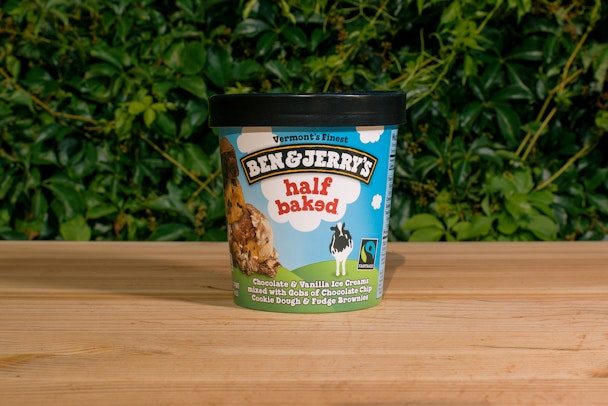Unilever vows to deliver growth as new group heads prepare to take over brand strategy
Unilever is gearing up for an overhaul of its organizational structure that, it promises, will bear fruit in the second half of the year as inflation pressures grip the business.

Matt Close has been appointed president of ice-cream
The FMCG-giant said last month that it was overhauling its complex and slow “matrix” operating model to instead have the business organized across five business groups: beauty & wellbeing, personal care, home care, nutrition and ice-cream.
“We known [the previous model] with three divisions and 15 performance management units was not as simple, fast or clear as it should be,” said chief executive Alan Jope on an earnings call today. “This change will make Unilever simple and agile with greater empowerment and accountability.”
Heading up beauty & wellbeing is Fernando Fernandez, its current executive vice-president for Latin America, while North American president Fabian Garcia will take charge of personal care and Peter ter Kueve will continue in his role as president of home care.
Hanneke Faber has been appointed president of nutrition having previously led foods & refreshment, while Matt Close has been appointed president of ice-cream.
Detailing the coming changes on the earnings call, Jope said each group head will be fully responsible and accountable for their own strategy, growth and P&L globally.
Previously, P&Ls were optimized across categories at a country level, which Jope says was resulting in “suboptimal outcomes”. P&Ls will now be optimized within a category across countries to “retain the strategic integrity” of decision making.
It means that, for the first time, the category heads will have autonomy to allocate budget – including marketing spend – and resources to the activities that support their growth strategy.
For example, the beauty & wellness division will invest more in D2C and in-store, whereas nutrition invests in OOH and grocery.
Jope will “performance manage” the division heads on a day-to-day basis to drive short and long-term growth.
“We will have a lean corporate structure,” he said. “This new operating model is a major change and will enable us to step up our growth. It’s simple and clearer on who is accountable.”
Finance boss Graeme Pitkethly said the scale of the overhaul shouldn’t be underestimated, saying it’s the biggest undertaking since it introduced the ‘One Unilever’ philosophy back in 2010.
“We’re bringing brand strategy and capability to deliver performance into the same place. That will be liberating. And will be a further step up on the performance we can deliver.”
But, as reported last month, the restructure will see the loss of some 1,500 management jobs within the next two years, which will deliver €600m in savings annually.
The coming months will be a period of “turmoil”, warned Jope, before investors begin to see the positive impact in the second half of the year.
Marketing spend
Jope said brand and marketing spend has been under scrutiny as it prepares for the coming year and inflation pressures. Over the coming year, it forecast its own input costs will rise as much as €3.5bn as it absorbs the significant inflation in the price of raw materials, freight and packaging.
While it is broadly maintaining spend at €7bn, it is being careful about where it’s going as it rolls out price increases globally.
It is reducing spend in Europe – where price increases have been slower to land - and in South East Asia, but pumping more budget into its key growth markets of US, India and China.
Despite criticism earlier this year from investor Sir Terry Leahy on its ‘purpose’ strategy, Unilever called out the continued growth of Dove, Hellman’s and Ben & Jerry’s as a particular highlight of the year.
“Our brand power is strong – 80% of our brands are either increasing or holding their power,” said Jope.
“The billion-euro brands that make up half our turnover grew 6.4% last year and by any measure are in good health. Our share of spend to market is above 100. We will not back off on competitive investment in our brands a) for the long-term and b) so they can support the pricing. The worst thing we could do is take a dip in BMI. We will spend at levels of competitiveness.“

